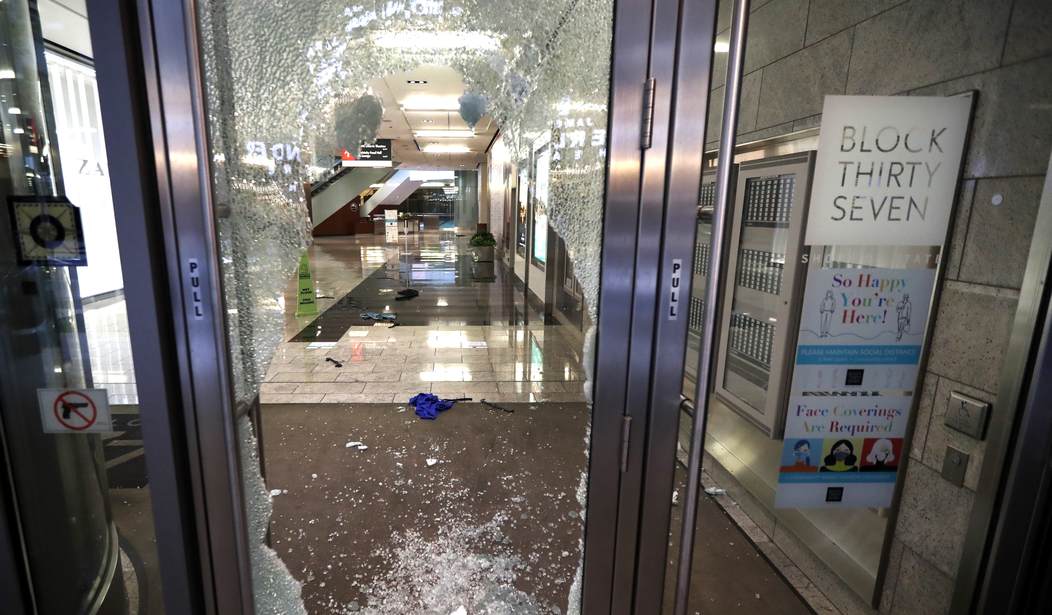Dick’s Sporting Goods reported on August 22 that despite a 2023 second-quarter net sales growth of 3. 6 percent, profits fell by 23 percent over the time period. President and CEO Lauren Hobert commented:
We are pleased with our strong sales performance for the second quarter led by robust transaction growth and continued market share gains. Within the quarter, sales accelerated significantly in July, and we remain confident in delivering positive comp sales for 2023. While we posted another double-digit EBT margin, our Q2 profitability was short of our expectations due in large part to the impact of elevated inventory shrink, an increasingly serious issue impacting many retailers. Despite moderating our 2023 EPS outlook, the enthusiasm we have for our business and the confidence we have in our long-term growth opportunities have never been stronger.
Other major retailers have publicly stated that theft is severely impacting their business operations. In May, adding to the woes brought upon itself via unadmitted self-inflicted wounds, Target stated that theft was at an epidemic level.
Target is expecting to take a $500 million hit in profits this year due to missing inventory, and it's largely because of theft and organized retail crime, the company said.
"It's an urgent issue," CEO Brian Cornell told investors on Target's first-quarter earnings call Wednesday. "Not just for Target, but across the entire retail industry."
I work in retail and have seen firsthand the increase in shoplifting activity. While individual shoplifters are a continuing problem, the main issue is organized shoplifting. The August 13 incident where an organized mob stole over $300,000 in goods from a Los Angeles Nordstrom is an extreme example, but also a distressingly common tale. Using stolen cars or license plates to make vehicle identification far more complicated, two or three people will walk into a store, grab as much of whatever has the highest resell or return value, and leave in a matter of minutes. Store employees, instructed to maintain personal safety above all other considerations, deliberately do not interfere. The days of employees en masse chasing shoplifting subjects out of the store and tackling them in the parking lot are long gone.
Despite the reports from retailers with unimpeachable woke credentials that shoplifting is brutalizing retail, threatening jobs, and closing stores, a sadly unsurprising effort by liberal politicians and media to parrot the narrative that it’s not really that bad persists. As Jennifer Van Laar reported here at RedState, Los Angeles mayor Karen Bass attempted to blame “conservative media” for painting a picture of rampant crime when the statistics tell a tale of … rampant crime. Similarly, in reporting on Dick’s Sporting Goods’ statement regarding theft, CNN entered into a string of curious contradictions trying to downplay the matter.
It’s not clear that crime is growing significantly more serious. Within the industry, at least one major player has argued that the problem is being overhyped: Walgreens earlier this year changed its tune on store theft hurting its business, saying, “Maybe we cried too much last year.”
This is a diversionary argument bearing no relevance, and Walgreens cowering to the woke mob is lamentable. As CNN itself reported in June 2021:
Last month, San Francisco Board of Supervisors member Ahsha Safai held a hearing to discuss the city’s shoplifting problem, and retailers including Walgreens and CVS spoke up about the issue.
“This has been out of control,” Safai said at the hearing. “People are scared to go into these stores: seniors, people with disabilities, children. And it’s just happening brazenly. We can’t just as a city throw up our hands and say this is OK.”
Theft at Walgreens stores in San Francisco is four times the average of its stores across the country, (Walgreens spokesman Phil) Caruso said, and spending on security guards in San Francisco is 35 times more than the chain’s average in other cities.
The CNN article regarding Dick’s also contains this curious comment:
“A community might be struggling with heavy job losses and people can’t easily find another job. Now they can’t afford basic necessities,” said Read Hayes, criminologist at the University of Florida and director of the Loss Prevention Research Council, which has members including retailers such as Walmart, Target, Home Depot and Gap.
To the best of my knowledge, designer handbags, Nike fleece apparel, and The North Face jackets do not fall in the “basic necessities” category.
Yet oddly enough, in the same article, CNN gets the facts right.
One factor that police believe is a driver of organized retail crime more recently is the fact that under new criminal justice reform laws and local district attorney’s policies to reduce mass incarceration, grand theft – the law that covers shoplifting – is a crime where judges can no longer jail a a person or even require bail, no matter how many times the same individual is caught.
In New York City, the New York Police Department has turned to federal prosecutors to target retail crime leaders who organized the storming of high-end stores to clean them out.
There are 300 people who have been arrested a collective 4,000 times that are solely responsible for 30% of all grand larceny in New York City and 70% of them are out on the street, according to an NYPD review of New York State court records.
Police say they remain frustrated that changes to criminal laws meant to reduce jail population in the city along with local DA’s policies that lean toward not seeking jail even for repeat offenders offer little disincentive to perpetrators to stop the crime.
As thefts grow larger, more brazen, and more violent, and progressive DAs refuse to prosecute the crimes should perpetrators get caught, the situation will only worsen. How many more Blake Mohs will it take before the public demands action — and, more importantly, votes accordingly?














Join the conversation as a VIP Member